do solar lights need maintenance | Quenenglighting Expert Guide
The Essential Guide to Solar Light Maintenance for Industry Professionals
For industry professionals involved in the procurement and deployment of solar lighting solutions, understanding the true maintenance requirements is paramount. While often marketed as 'set-and-forget' systems, optimal performance and longevity depend on a proactive approach. This guide addresses the most pressing questions regarding solar light upkeep, equipping you with the professional knowledge needed to make informed decisions and ensure robust, reliable installations.
1. How Often Do Solar Lights Need Cleaning, and What's the Impact of Neglect?
The frequency of cleaning solar light panels largely depends on their environment. In areas with high dust, pollen, bird droppings, or industrial pollutants, cleaning may be required monthly or quarterly. For cleaner environments, semi-annual or annual cleaning might suffice. The primary goal is to ensure the solar panel’s surface is free of obstructions, as accumulated dirt can significantly reduce charging efficiency. Industry studies suggest that dust accumulation can lead to a 15-25% decrease in solar panel efficiency within just a few weeks in dusty regions. Neglecting cleaning directly impacts the battery's charge level, shortening the light's operational duration and overall lifespan, making it a critical consideration for continuous performance in large-scale installations.
2. What is the Expected Lifespan of Solar Light Batteries and the Fixtures Themselves?
The lifespan of solar light components varies. High-quality LiFePO4 (Lithium Iron Phosphate) batteries, commonly used in professional-grade solar lights, typically last 5-7 years or more (up to 2,000-4,000 charge cycles) before significant capacity degradation. NiMH batteries, often found in consumer-grade lights, have a shorter lifespan of 2-3 years (500-1,000 cycles). The LED light source itself is highly durable, with a lifespan often exceeding 50,000 hours, equivalent to over a decade of nightly operation. The overall fixture lifespan is heavily influenced by the quality of materials, ingress protection (IP rating), and environmental factors. High Quality fixtures designed with marine-grade aluminum or high-grade plastics can last 10-15 years, while cheaper models may degrade faster due to UV exposure and material fatigue. Professional procurement should prioritize systems with easily replaceable batteries to extend the overall product lifecycle.
3. Do Solar Lights Require Specific Maintenance in Different Seasons or Climates?
Yes, seasonal maintenance can significantly impact performance. In winter, especially in regions with snow, panels may need to be cleared to ensure maximum sunlight absorption. Lower temperatures can also affect battery performance, though professional-grade batteries are designed to operate efficiently across a wider temperature range (-20°C to 60°C). In areas prone to heavy rain or high humidity, ensuring proper drainage and checking for water ingress around seals is crucial. During autumn, falling leaves can obstruct panels, requiring more frequent checks. Extremely hot climates necessitate ensuring proper heat dissipation for the battery and electronics to prevent premature aging. Understanding the specific climate conditions of the deployment site is vital for establishing a tailored maintenance schedule.
4. What Are Common Troubleshooting Steps for Malfunctioning Solar Lights?
Most issues with solar lights stem from inadequate charging or sensor problems. Common troubleshooting steps include:
- Clean the Solar Panel: Ensure the panel is free of dirt, dust, and debris.
- Check for Obstructions: Verify no trees, buildings, or other structures are shading the panel during daylight hours.
- Inspect Wiring: For multi-component systems, check all connections for looseness or corrosion.
- Test the Battery: If lights are dim or not staying on, the battery may be at the end of its life or not charging properly. Professional systems often allow for easy battery replacement.
- Verify Sensor Functionality: Ensure the light sensor (photocell) is clean and not obstructed, as it determines when the light should turn on. For motion-sensor lights, ensure the PIR sensor is clear.
- Reset the System: Some advanced solar lights have a reset button or require a power cycle (e.g., disconnecting and reconnecting the battery).
5. Are Solar Lights Truly Maintenance-Free, or What Level of Care is Expected for Optimal Performance?
While solar lights require less hands-on maintenance than grid-tied systems or traditional wired lights, they are not entirely maintenance-free for optimal, long-term performance. The degree of required care directly correlates with the quality of the product and environmental conditions. High-quality industrial-grade solar lights are designed for minimal intervention, often requiring just periodic panel cleaning and eventual battery replacement. However, neglecting these simple tasks can lead to significant degradation in performance and lifespan. For procurement professionals, it's essential to communicate realistic maintenance expectations to end-users or project stakeholders. Investing in systems with robust build quality, efficient charging algorithms, and easily serviceable components reduces the total cost of ownership (TCO) over the product's lifetime, ensuring sustainable and reliable illumination.

Have more questions about our products or services?
The latest hot news you might like

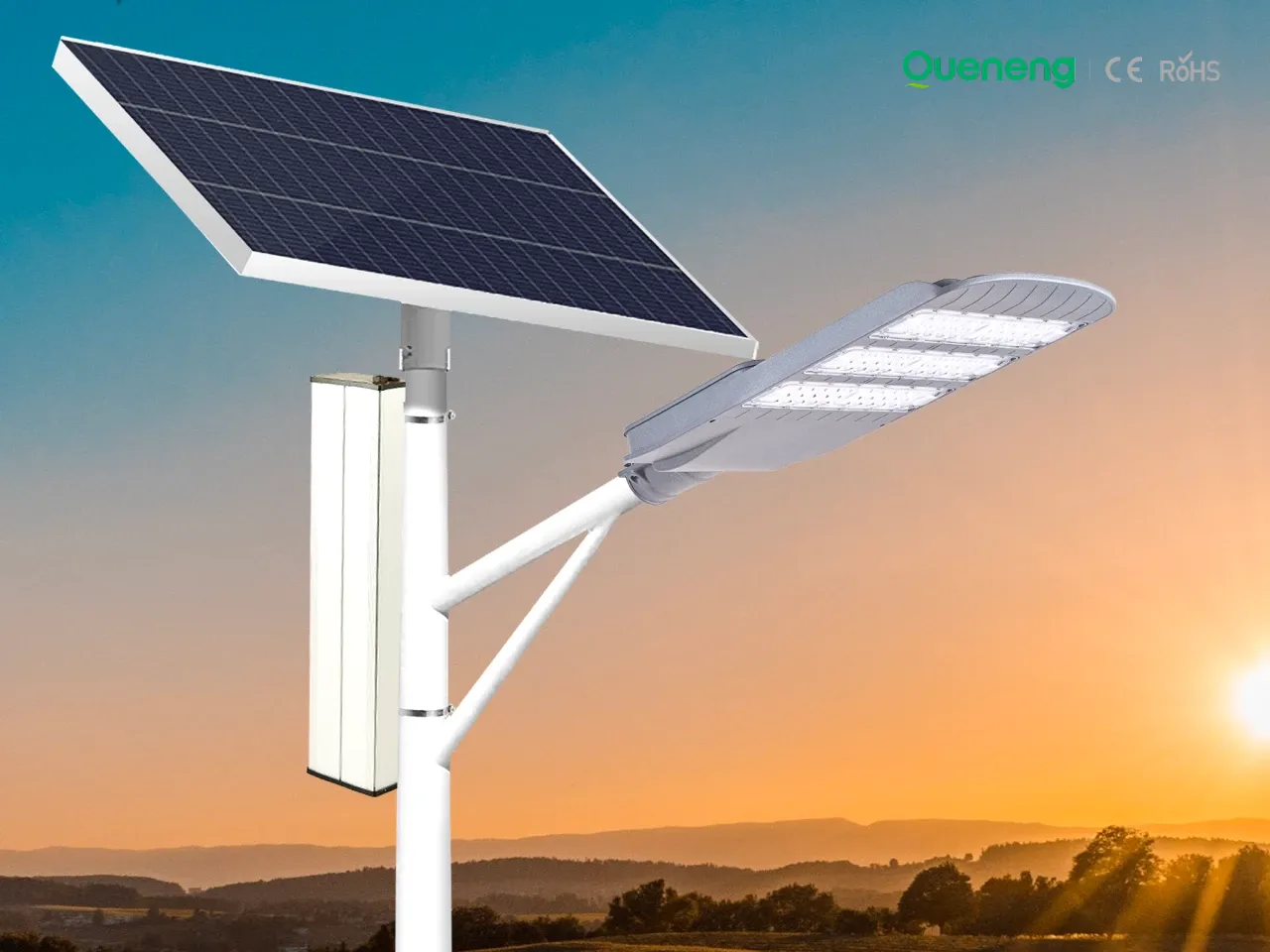

A comprehensive 2026 guide to solar street light pricing. Covers commercial installation costs, LiFePO₄ battery trends, smart IoT features, and a detailed ROI comparison against traditional grid lighting.

A comprehensive 2026 outlook on integrated solar street lights, featuring performance benchmarks like bifacial panels, LiFePO₄ batteries, and Smart City IoT integration for maximum ROI.
FAQ
Battery Performance and Testing
What is a short circuit experiment?
Solar Street Light Luda
What are the key benefits of using LED lights in Luda solar street lights?
LED lights used in Luda solar street lights are highly energy-efficient, providing bright illumination while using less power compared to traditional lighting solutions. LEDs also have a longer lifespan, reducing the need for frequent bulb replacements, and they generate less heat, further enhancing their energy efficiency and performance in outdoor conditions.
Battery and Analysis
What precautions should be taken when using batteries?
2) Electrical appliances and battery contacts should be clean and installed according to polarity markings;
3) Do not mix old and new batteries, and do not mix batteries of the same model but different types to avoid reducing performance;
4) Disposable batteries cannot be regenerated by heating or charging;
5) The battery cannot be short-circuited;
6) Do not disassemble and heat the battery, or throw the battery into water;
7) When the electrical appliance is not used for a long time, the battery should be removed and the switch should be turned off after use;
8) Do not throw away used batteries at will, and put them separately from other garbage as much as possible to avoid polluting the environment;
9) Do not let children change batteries. Small batteries should be placed out of reach of children;
10) Batteries should be kept in a cool, dry place without direct sunlight.
Distributors
What is the process for placing an order as a distributor?
Once you become an approved distributor, you can place orders directly with our sales team through our online portal or by contacting us via email. Our team will work with you to ensure a smooth ordering process and timely delivery.
Tourist Attractions and Resorts
Can solar lights be used for both functional and decorative purposes?
Yes, solar lighting is versatile and can be used for both functional purposes, such as illuminating pathways and parking lots, and decorative purposes, such as enhancing garden features or architectural details.
Solar Street Light Luqing
How bright are solar street lights?
Solar street lights are equipped with high-efficiency LED lights that provide bright, consistent illumination. The brightness typically ranges from 2,000 to 12,000 lumens, depending on the model, providing clear and effective lighting for streets, parks, and public areas.

The Solar Streetlights of Luhao for Municipalities are designed to deliver reliable, energy-efficient, and cost-effective public lighting solutions. Equipped with advanced LED technology, durable lithium batteries, and high-efficiency solar panels, these streetlights provide consistent illumination for roads, parks, residential areas, and government projects.
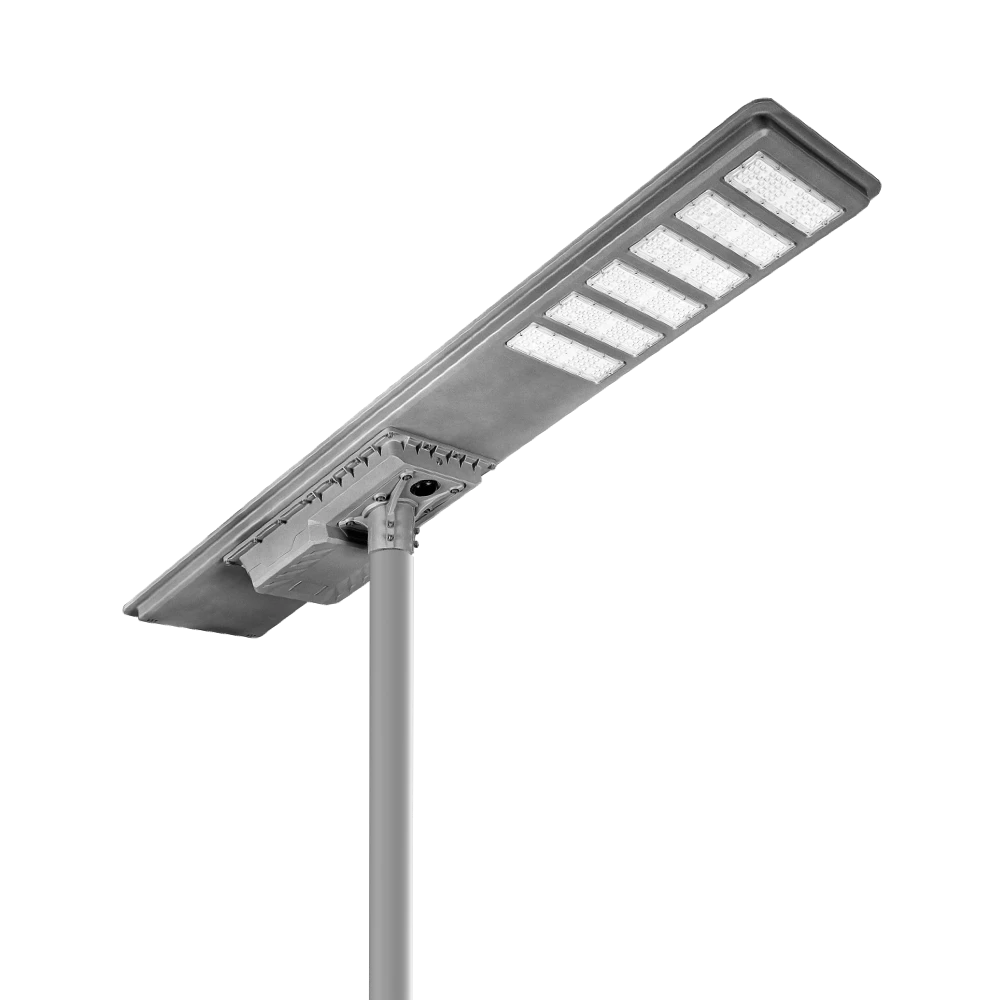
Queneng's Luqiu Innovative Solar Street Light offers energy-saving, durable outdoor lighting. This solar power street light provides a reliable and eco-friendly solution for illuminating your streets and pathways.
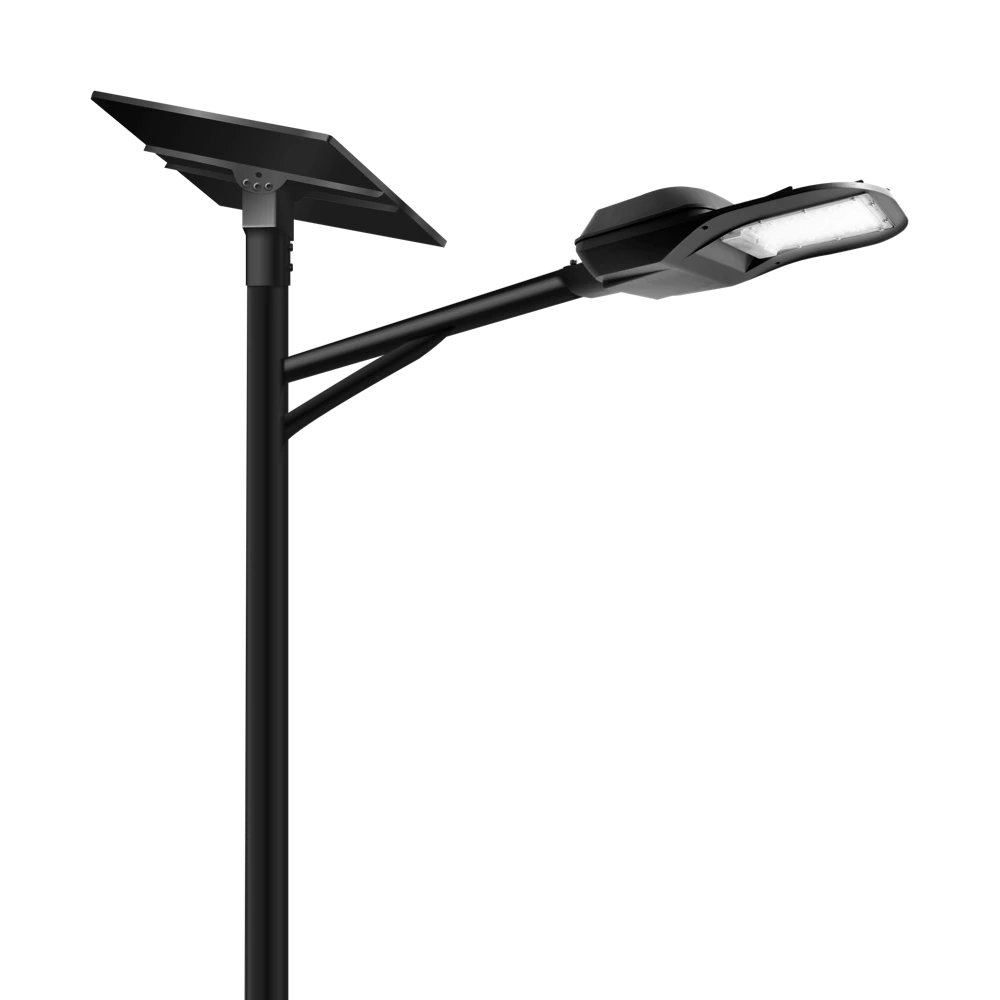

Lubai is an integrated solar street light designed for stable, long‑term outdoor lighting in off‑grid and weak‑grid areas. Combining a high‑efficiency solar panel, LiFePO₄ battery, and intelligent motion sensing, Lubai delivers reliable illumination with low maintenance and fast installation.
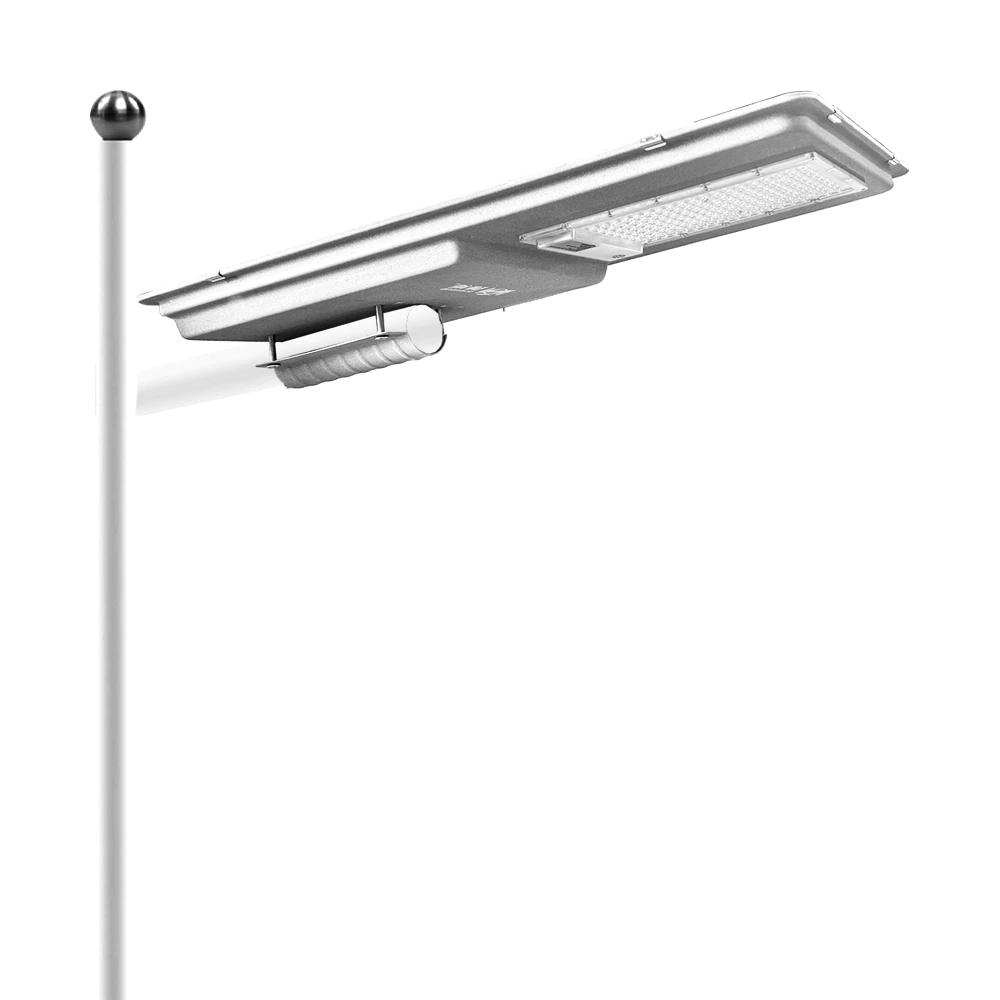
Queneng's Lufa high-efficiency solar LED street lights illuminate urban and commercial spaces brilliantly. These commercial solar LED street lights offer superior energy savings and reliable performance, making them an ideal sustainable lighting solution.
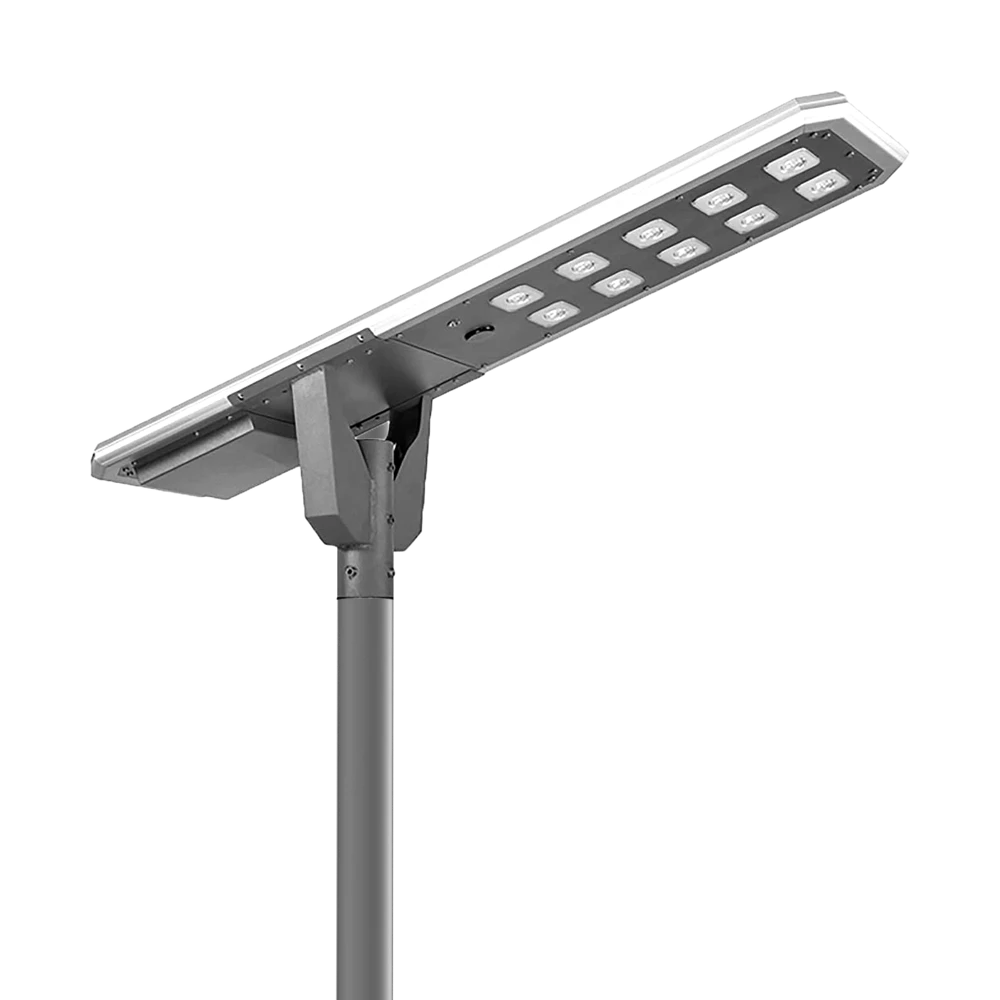
Illuminate your outdoor spaces with the Solar Street Light, a cutting-edge solution combining advanced solar technology and energy-saving LED lighting.
If you would like more information about Queneng solar lighting solutions, please send us a message by filling out the form below. Our professional team will get back to you within 24 hours!
Rest assured that your privacy is important to us, and all information provided will be handled with the utmost confidentiality.
Schedule a Meeting

Book a date and time that is convenient for you and conduct the session in advance.
Have more questions about our products or services?





















